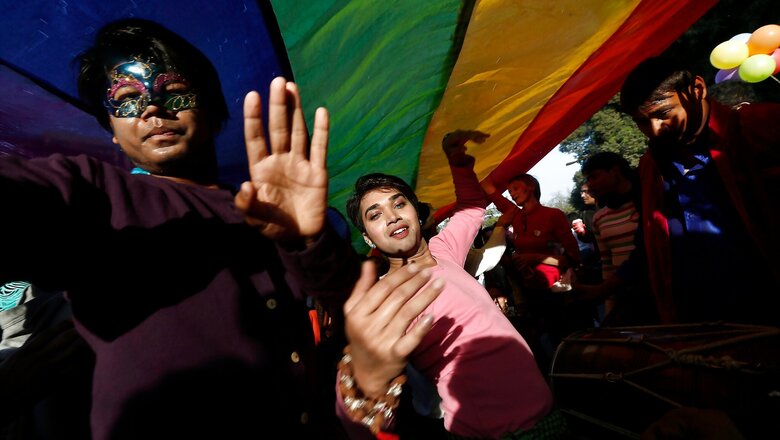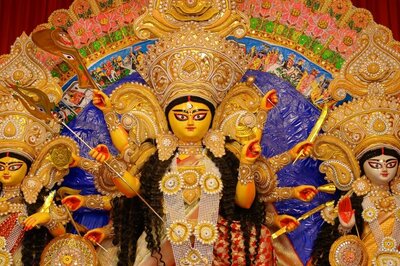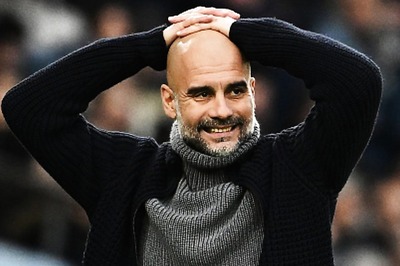
views
The Delhi Pride Parade, started by Delhi Queer Pride community, will be held on 29th November this year. The event is a colourful show of solidarity and support and is seen as an avenue where people from the community come out openly. When we talk about Pride, the vibrant rainbow flag cannot be overlooked. Vibgyor has become the symbol for the LGBT community and is used as an umbrella for the vast and colorful spectrum.
The flag was popularized as a symbol of lesbian, gay, bisexual and transgender (LGBT) pride and diversity by San Francisco artist Gilbert Baker in 1978. The different colors symbolize diversity in the community. Recently, after the landmark marriage equality judgement by the Supreme Court of the United States, people all over the world celebrated it with a 'Rainbow DP'. Social Media sites were all about #LoveWins, while people in India wondered if the draconian Section 377 will ever be abolished.
Pride Parades, which have now become a popular fixture in many cities have a history steeped in political activism and protests. The first parades were to commemorate 1969's Stone Wall Riots, one of the most important events in gay rights history. India had the first taste of Pride on June 29, 2008, when Delhi, Bengaluru, Pondicherry & Kolkata saw coordinated events. Kolkata had earlier witnessed a different version of the parade in 1999.
Amalina, who's an active member of The Delhi Queer Pride community, talks about her expectations from this year's Parade. She says "I will probably cry again because I am happy. But my happiness is bittersweet, because we have such a long way to go. We are proud of who we are and what we have achieved, of our community, our resilience, our dissent.”
"But it is also a call to do more, to be more, to continue to fight & to remember the comrades we have lost, the people whose stories the news will never tell, " she adds.
November, also called the Pride month, witnesses a plethora of colorful events, including poetry, fundraisers and picnics. Poet and activist Aditi Angiras, founder of Bring Back the Poets, recently organised the third instalment of 'Extremely Queerious Poetry', which brings together poets from the community and outside.
"It went really well, it's nice to see young people speak freely about their stories and we provide them that platform. This was the first time that we saw many poets outside the queer community in the event, sharing their stories with us," Aditi says.
Started in 2008 with just 35 people, the LGBT participation in Delhi Pride Parade has grown tremendously. It is not just attended by the queer community, but also by family members and people who support them.




















Comments
0 comment